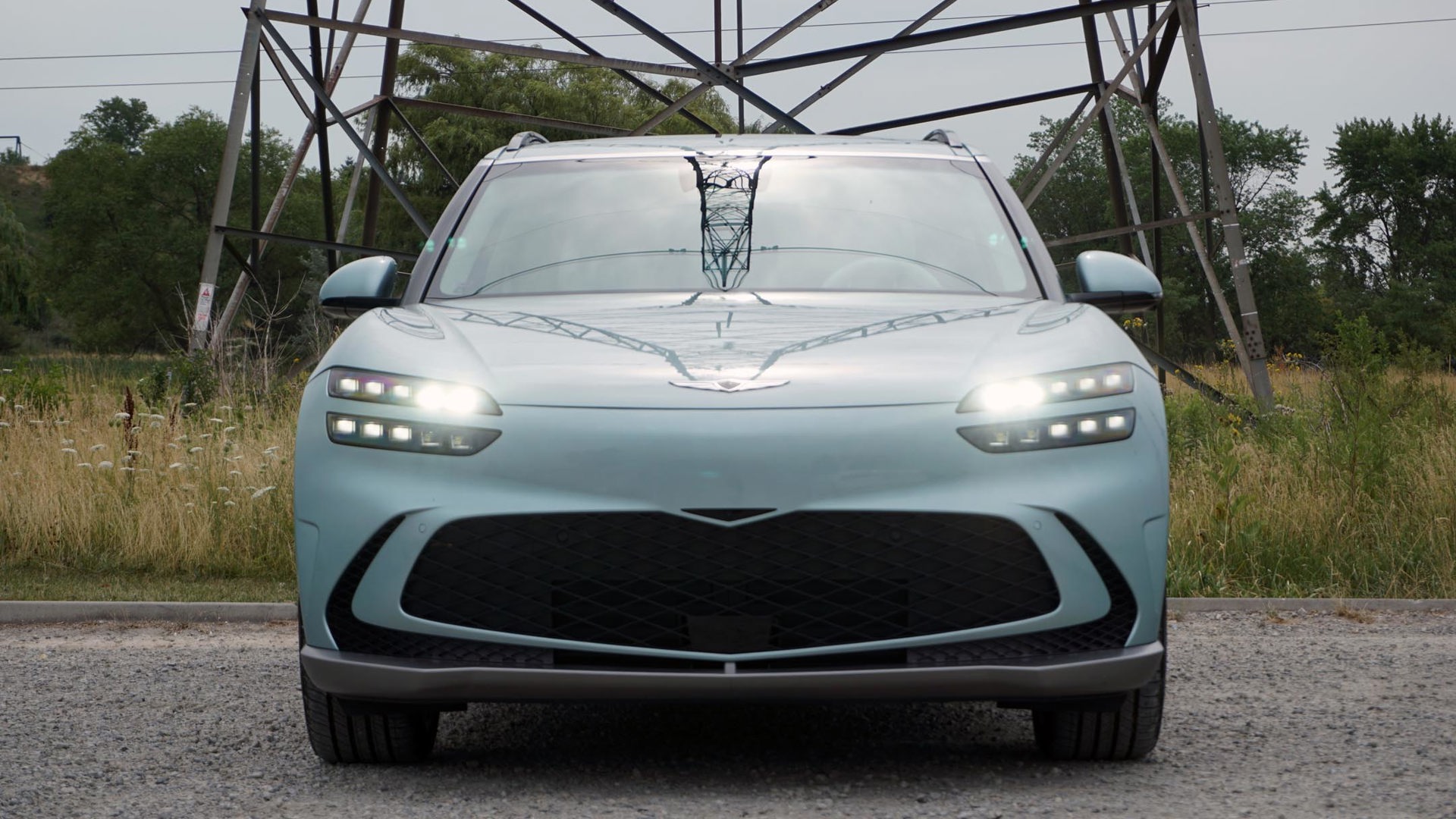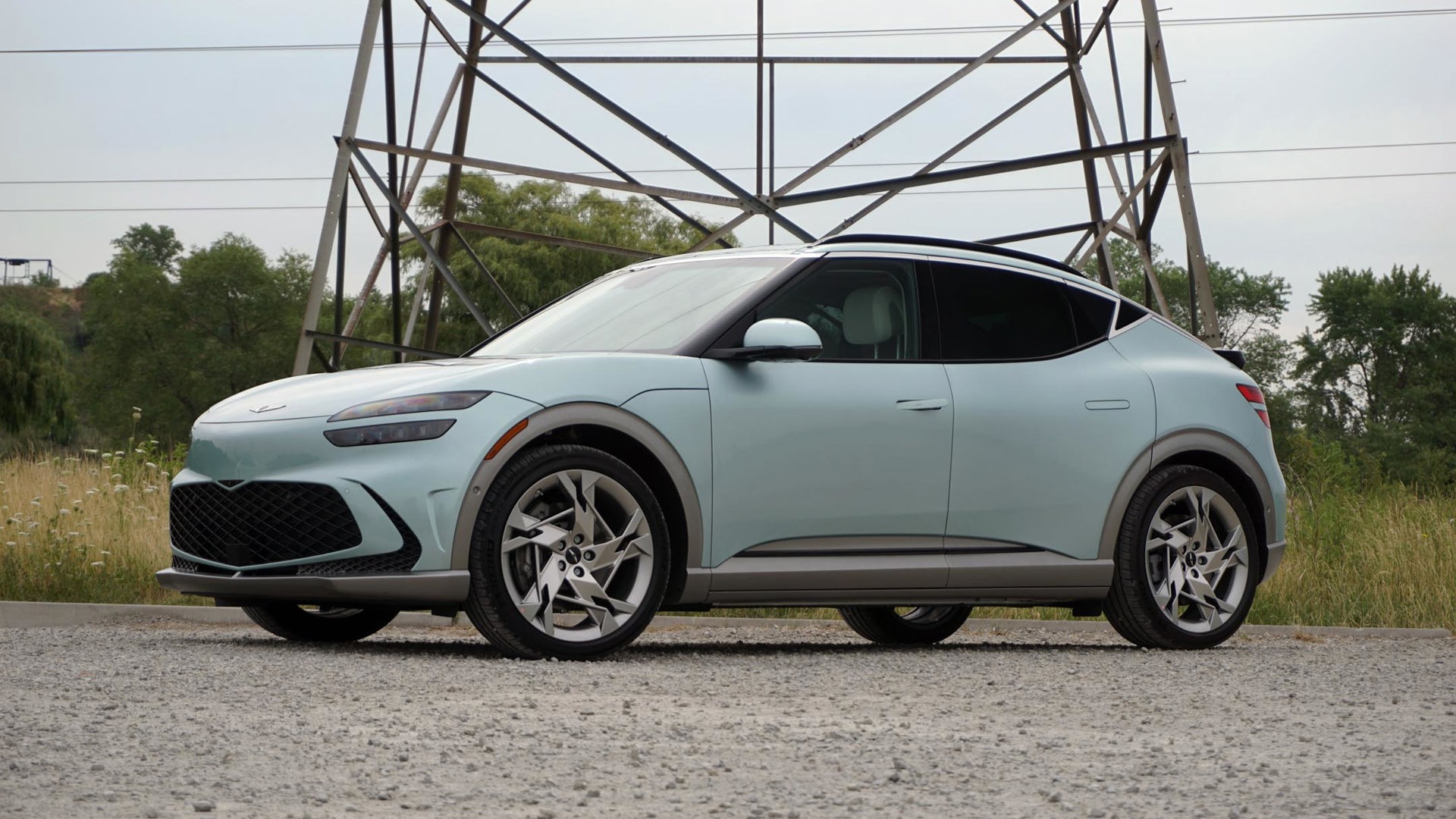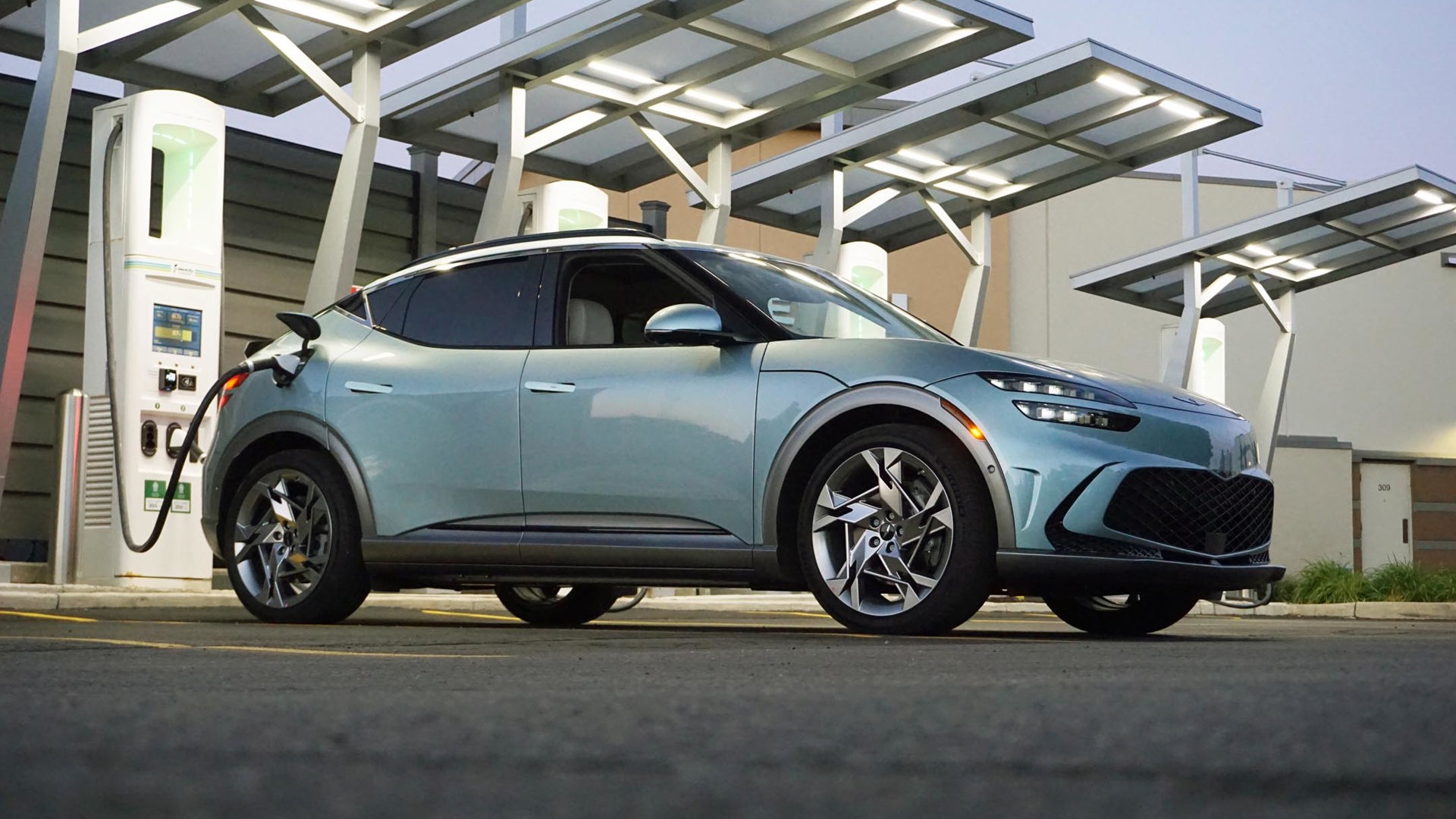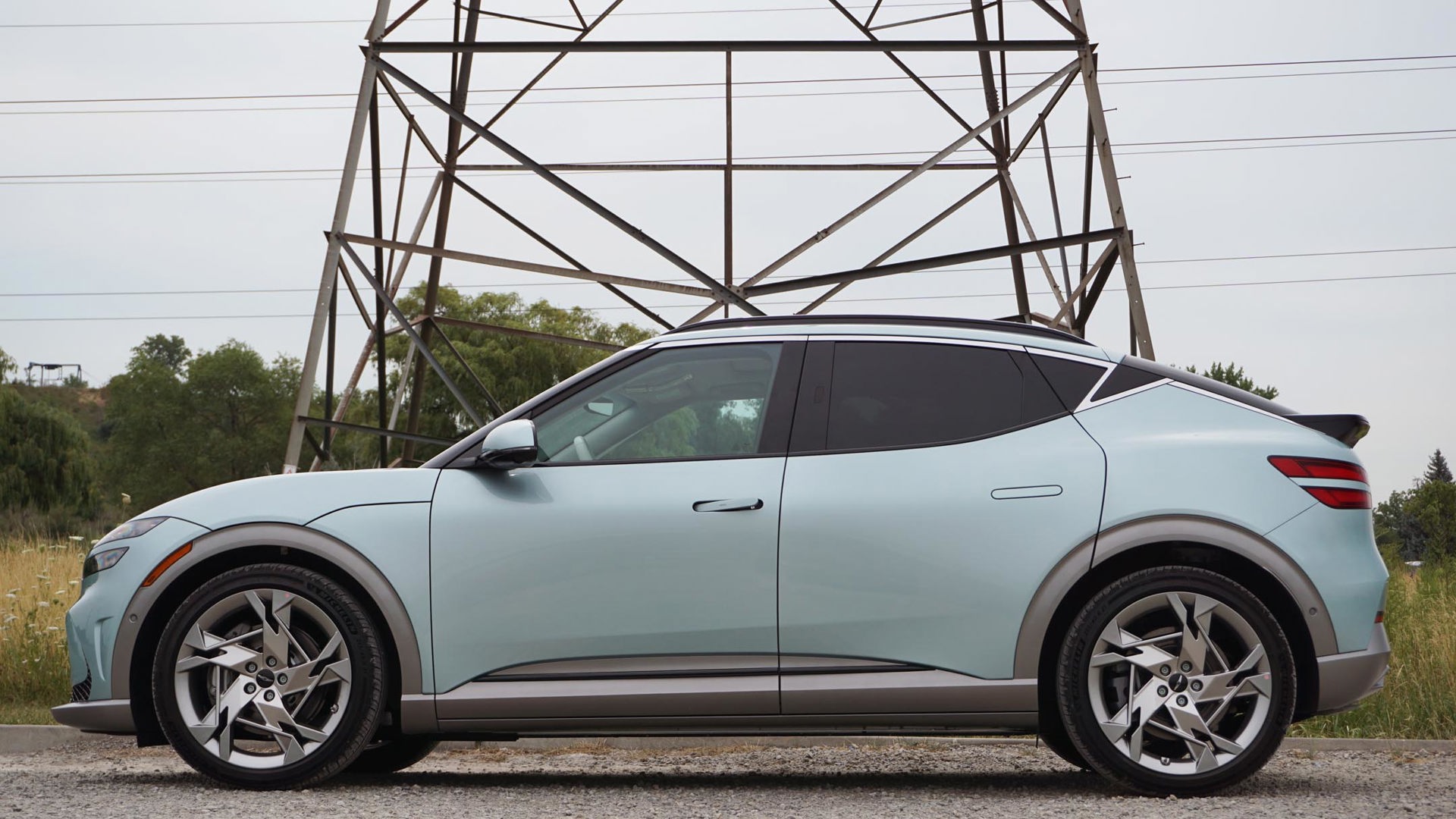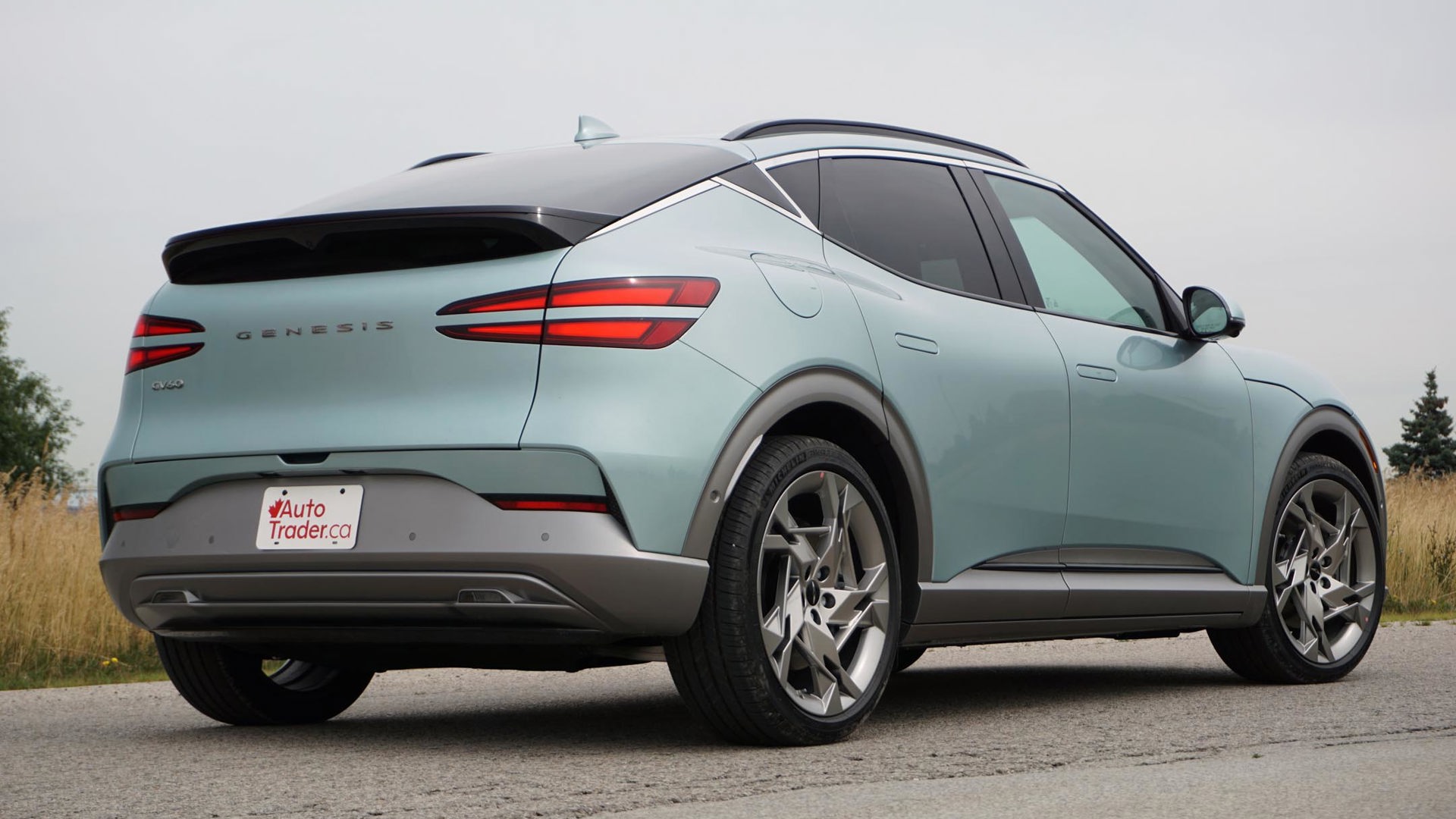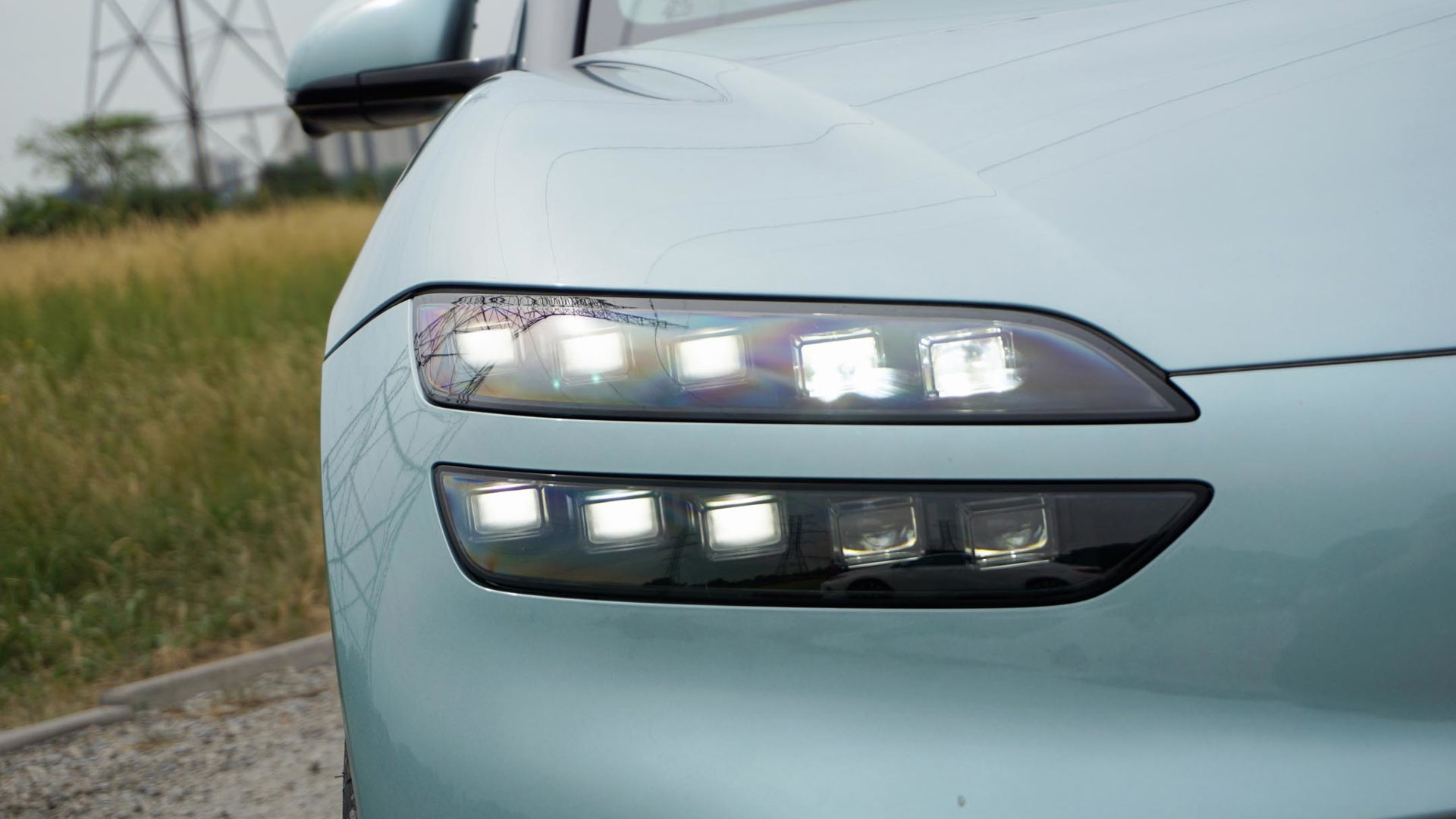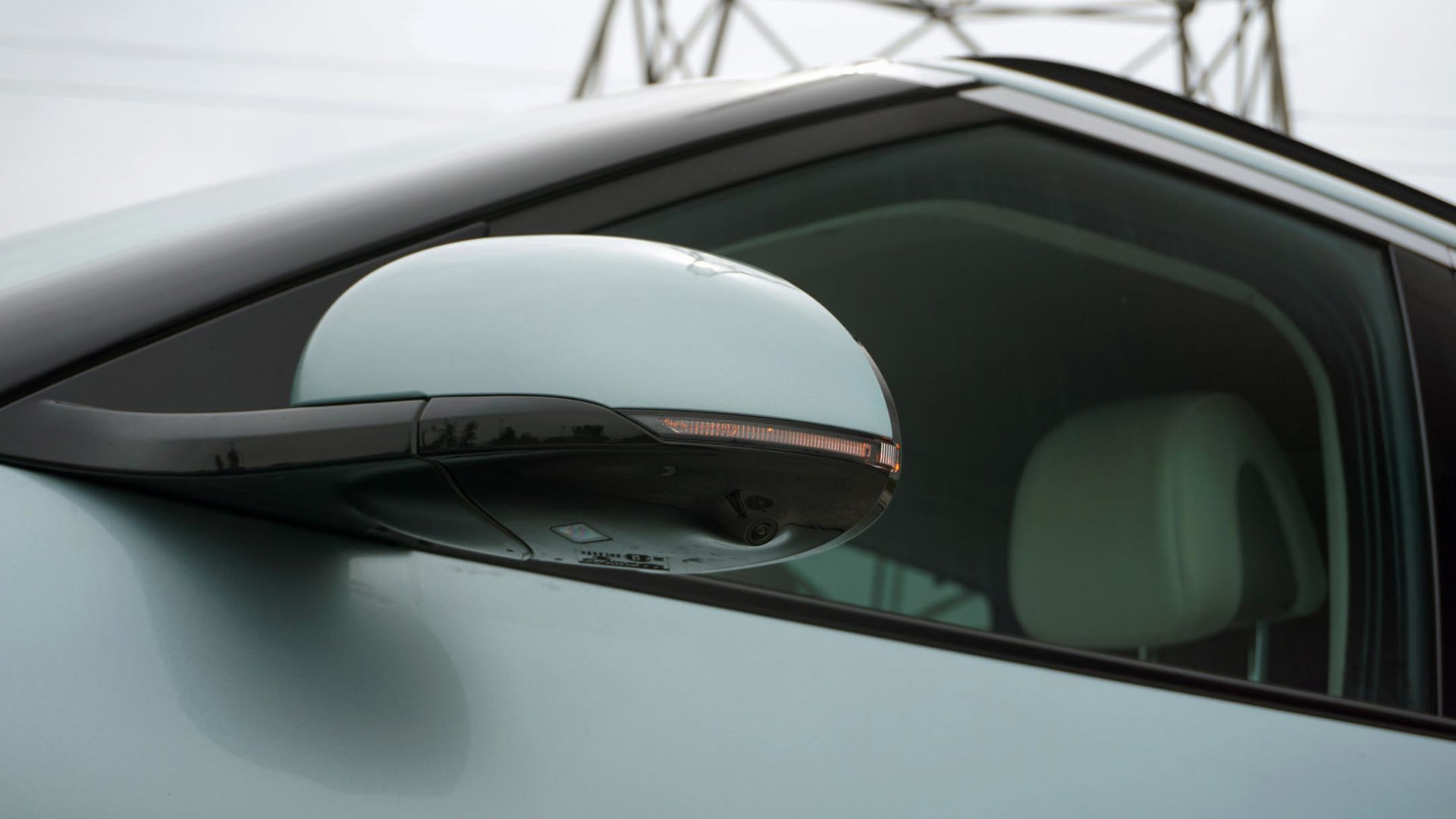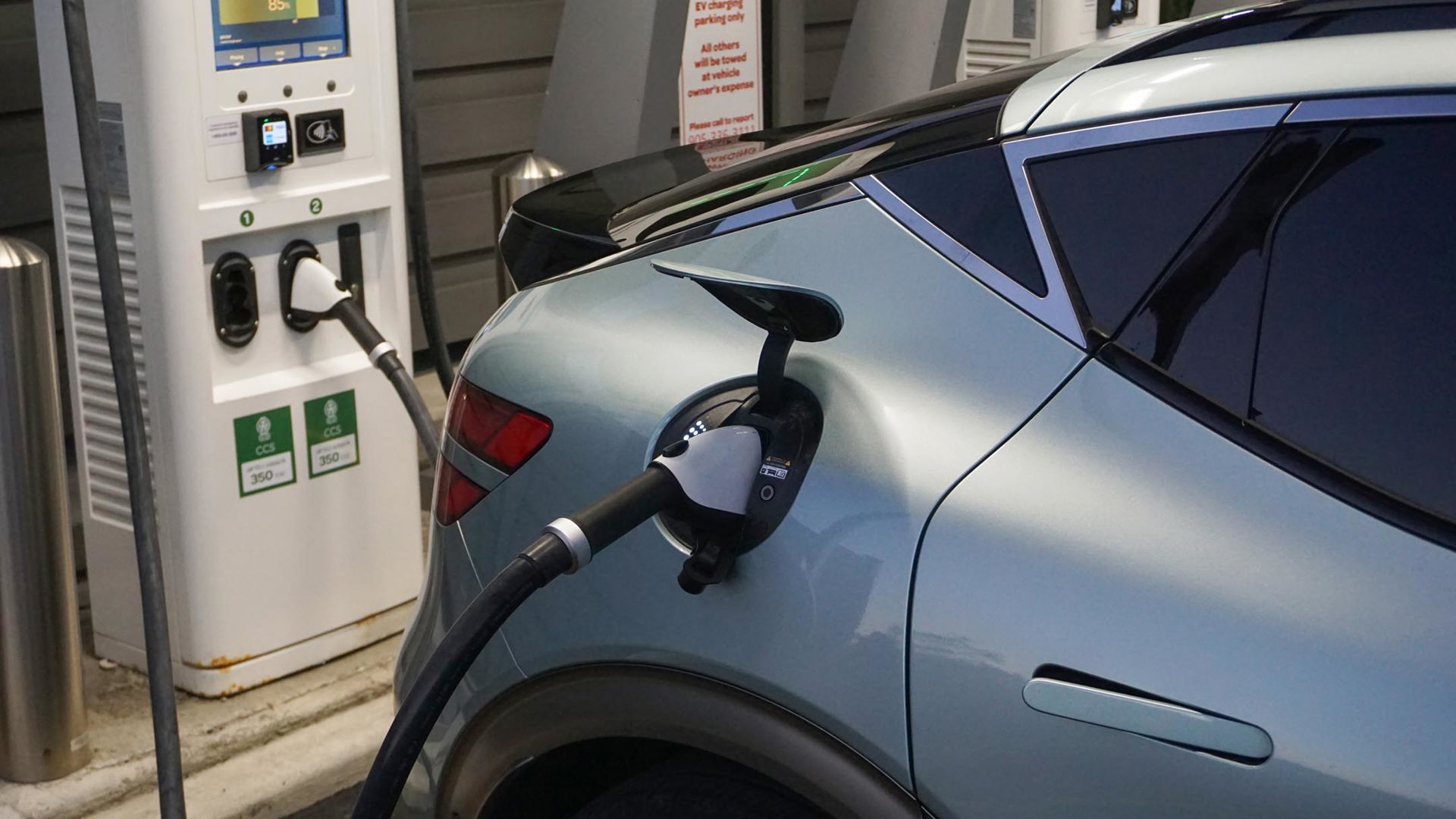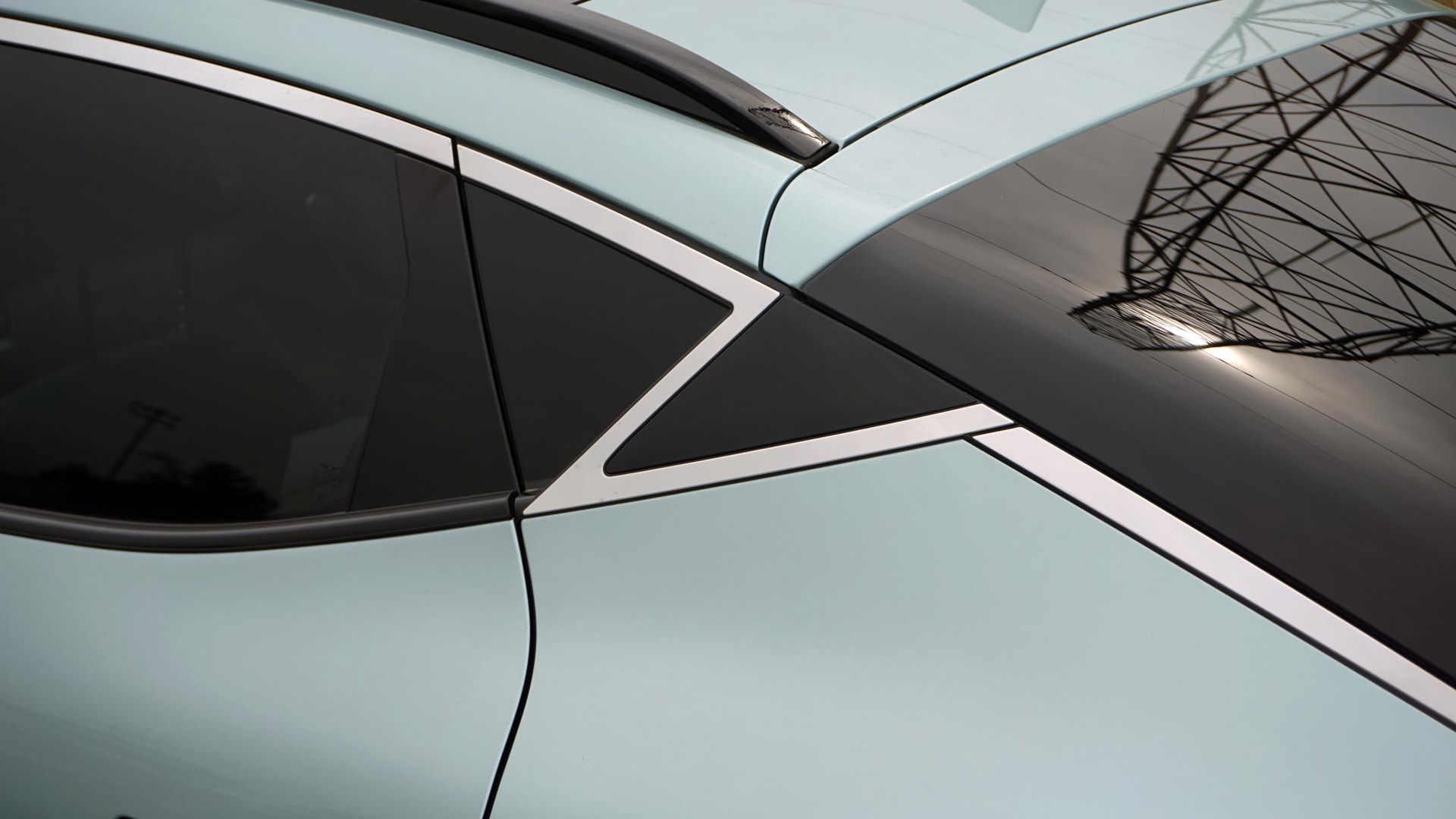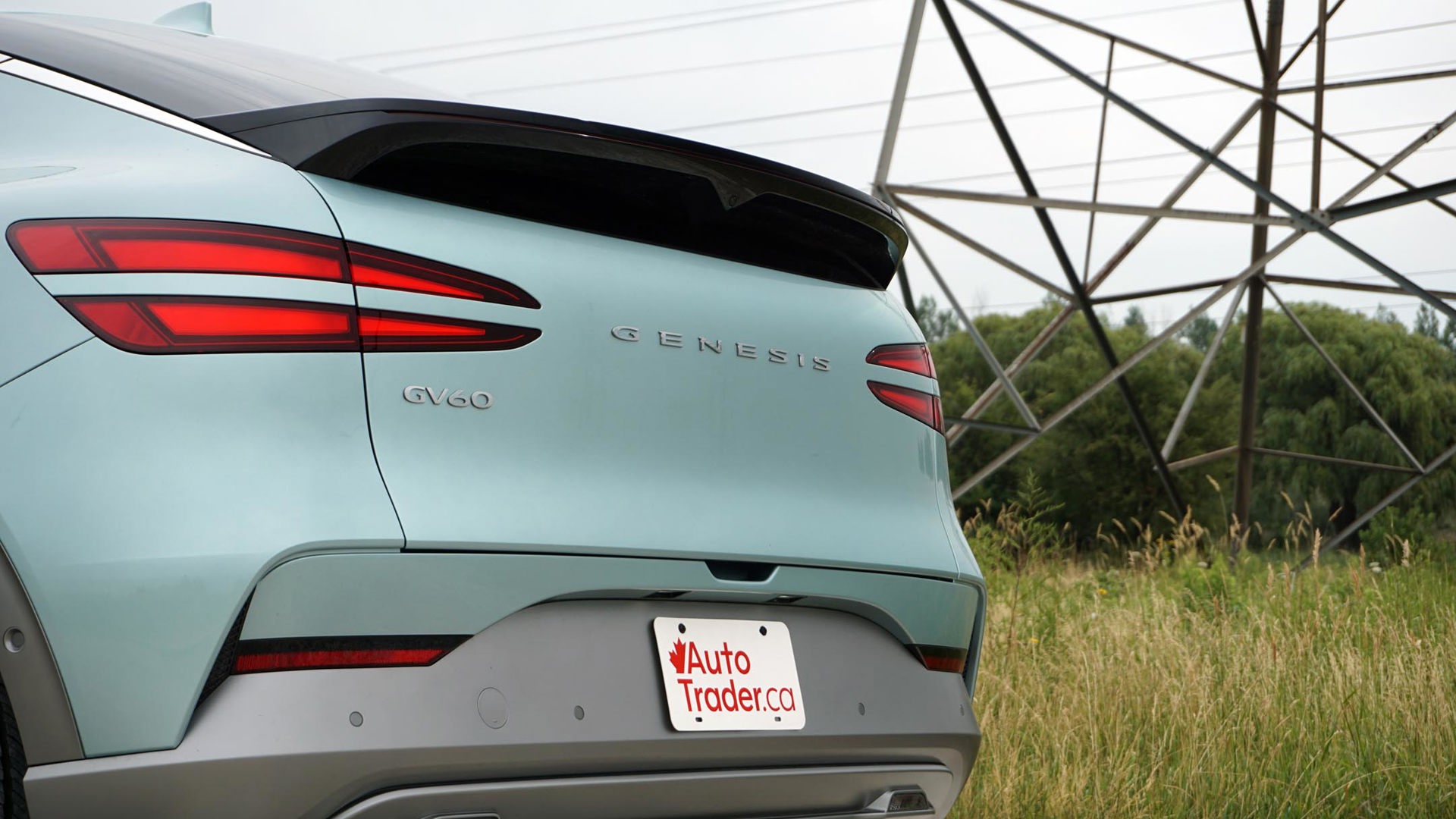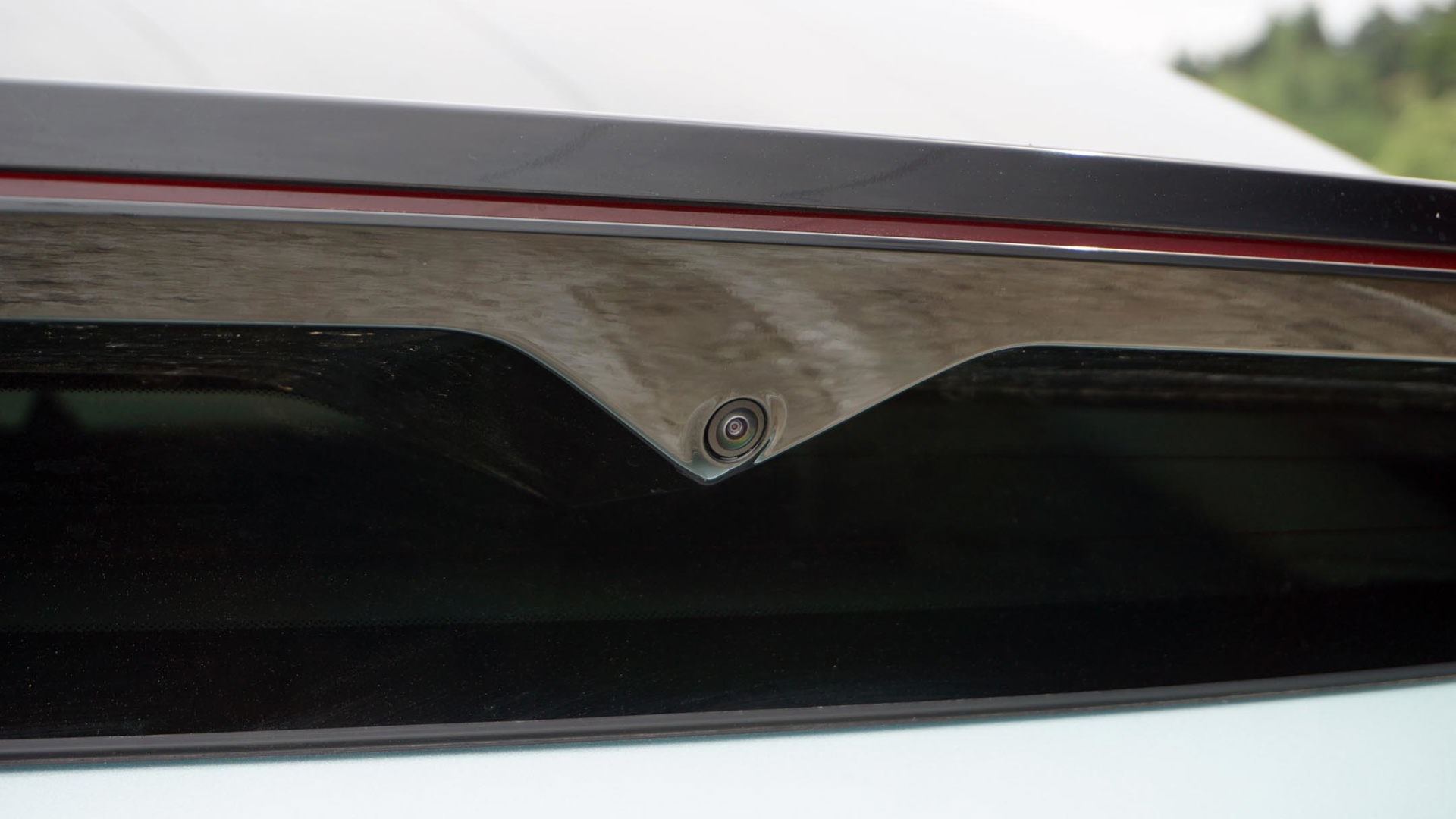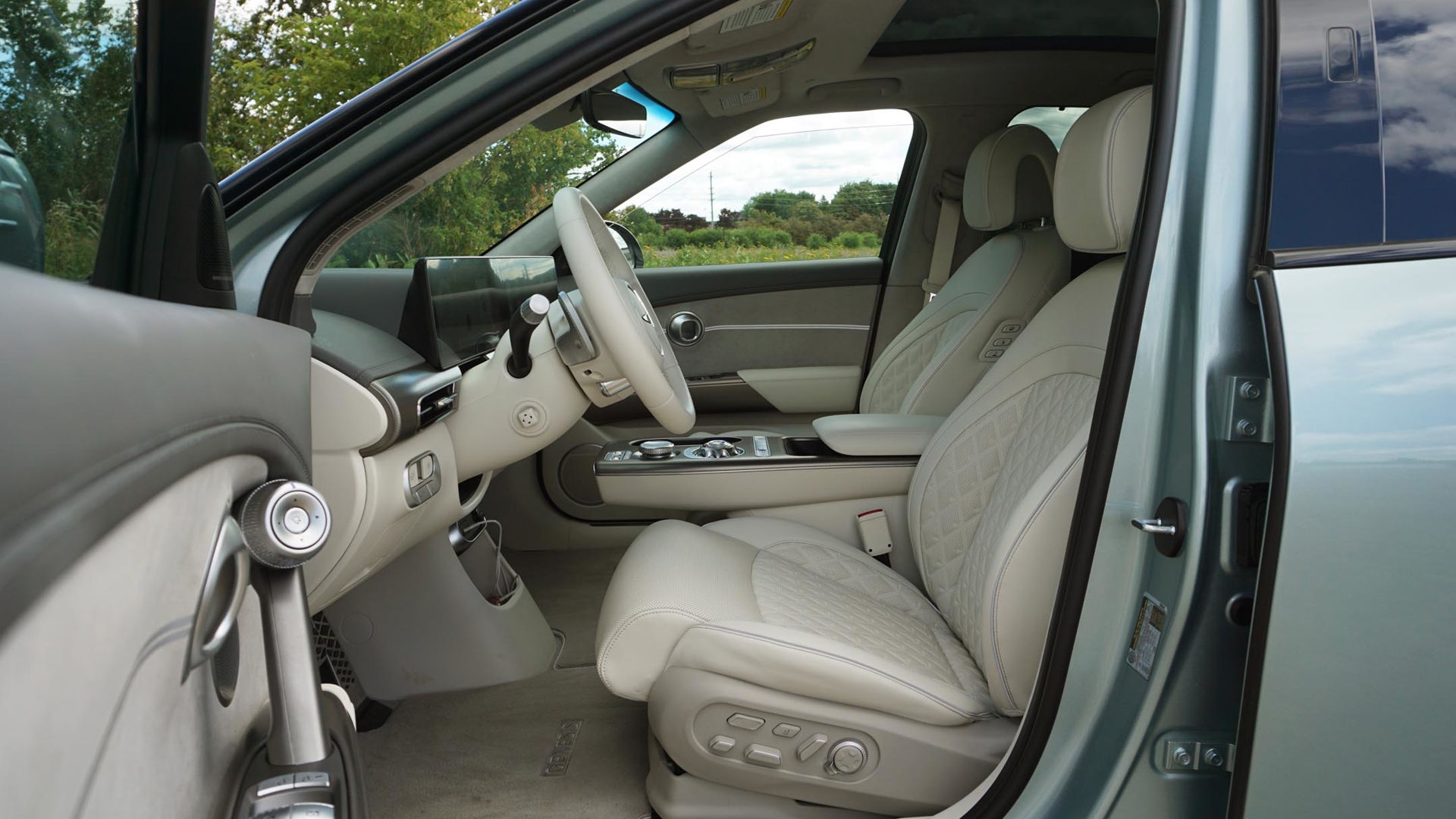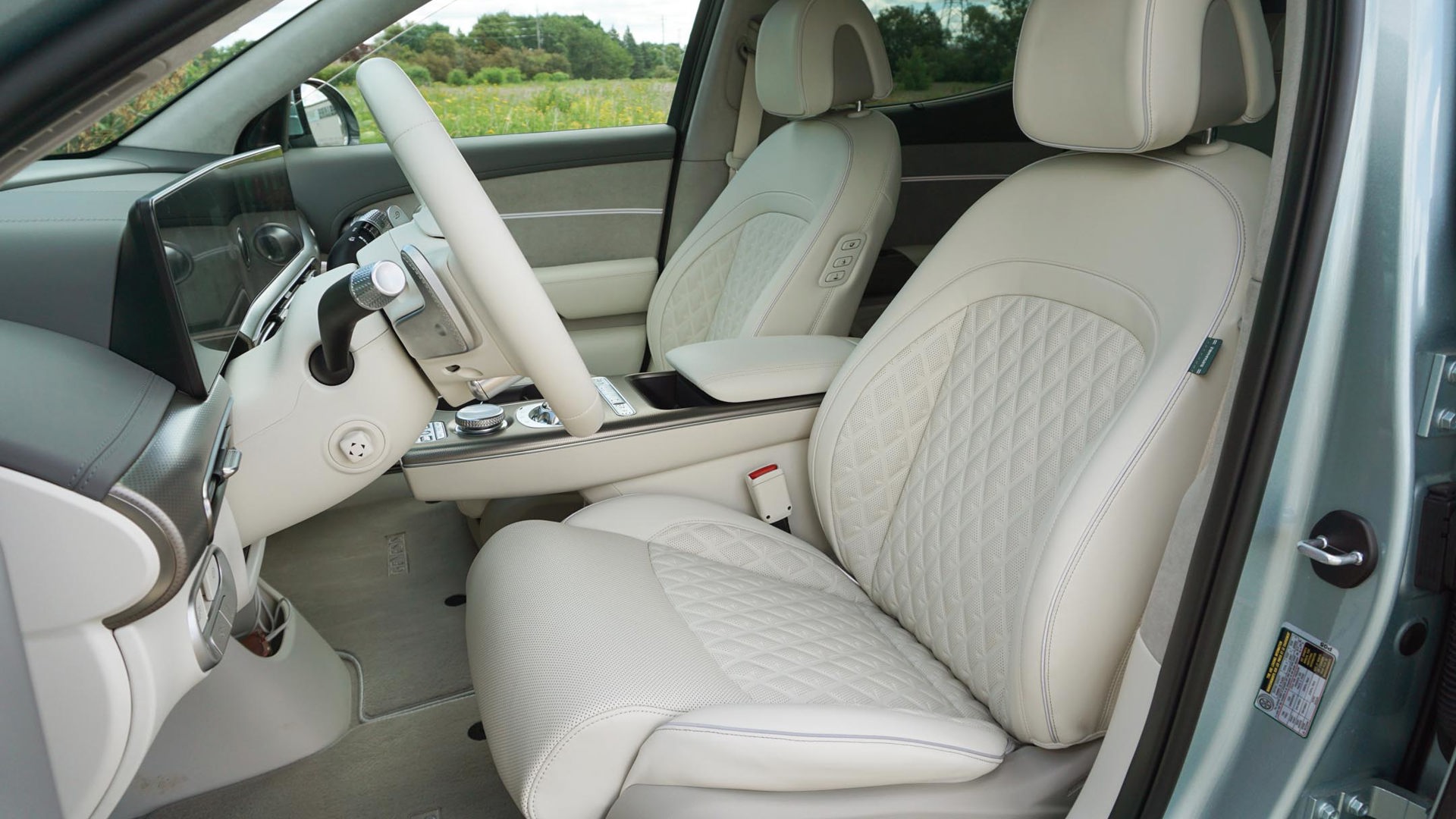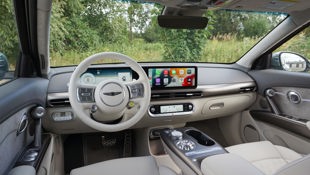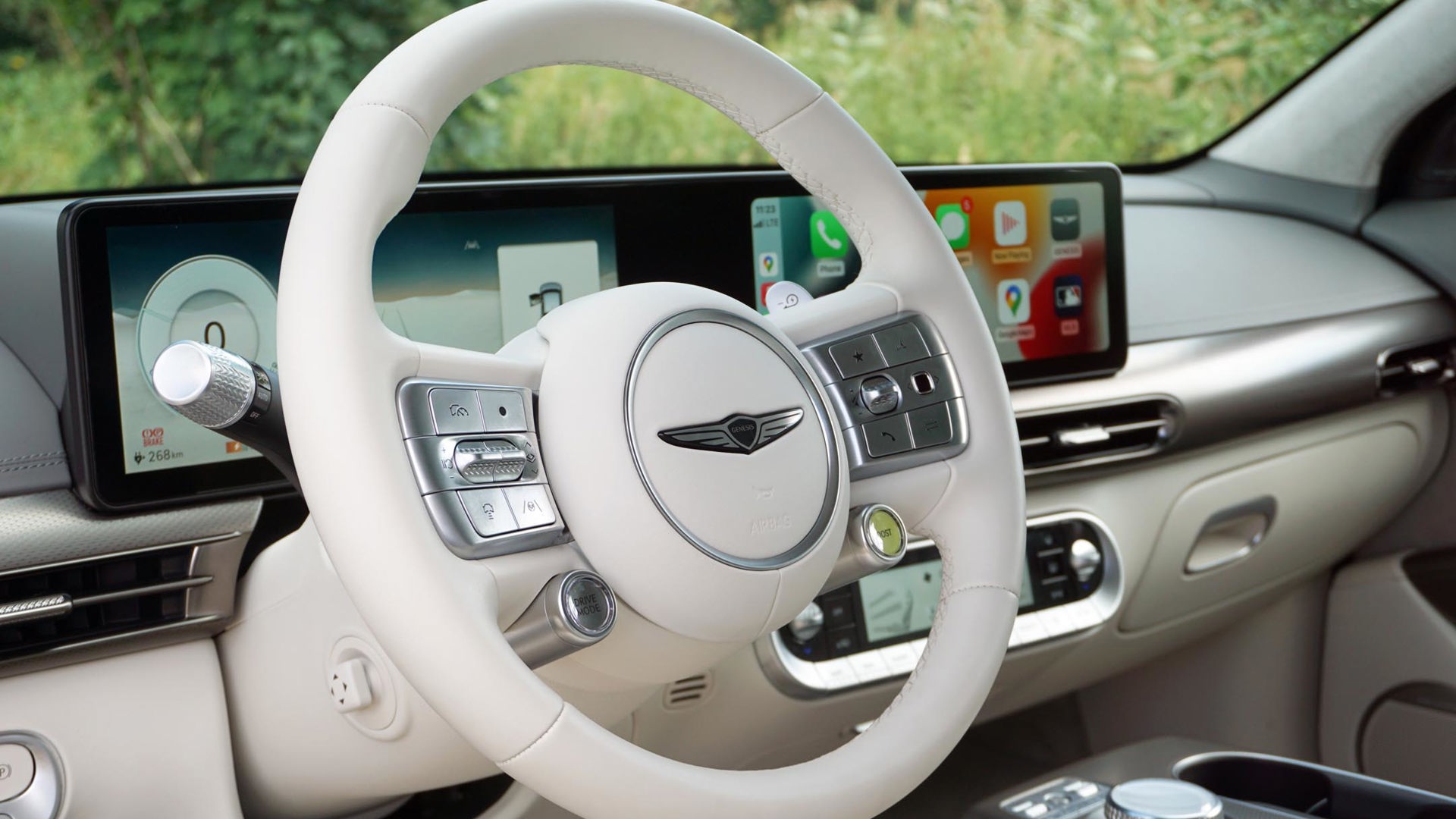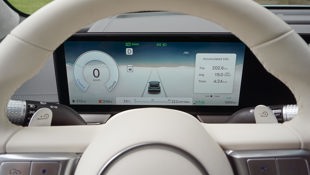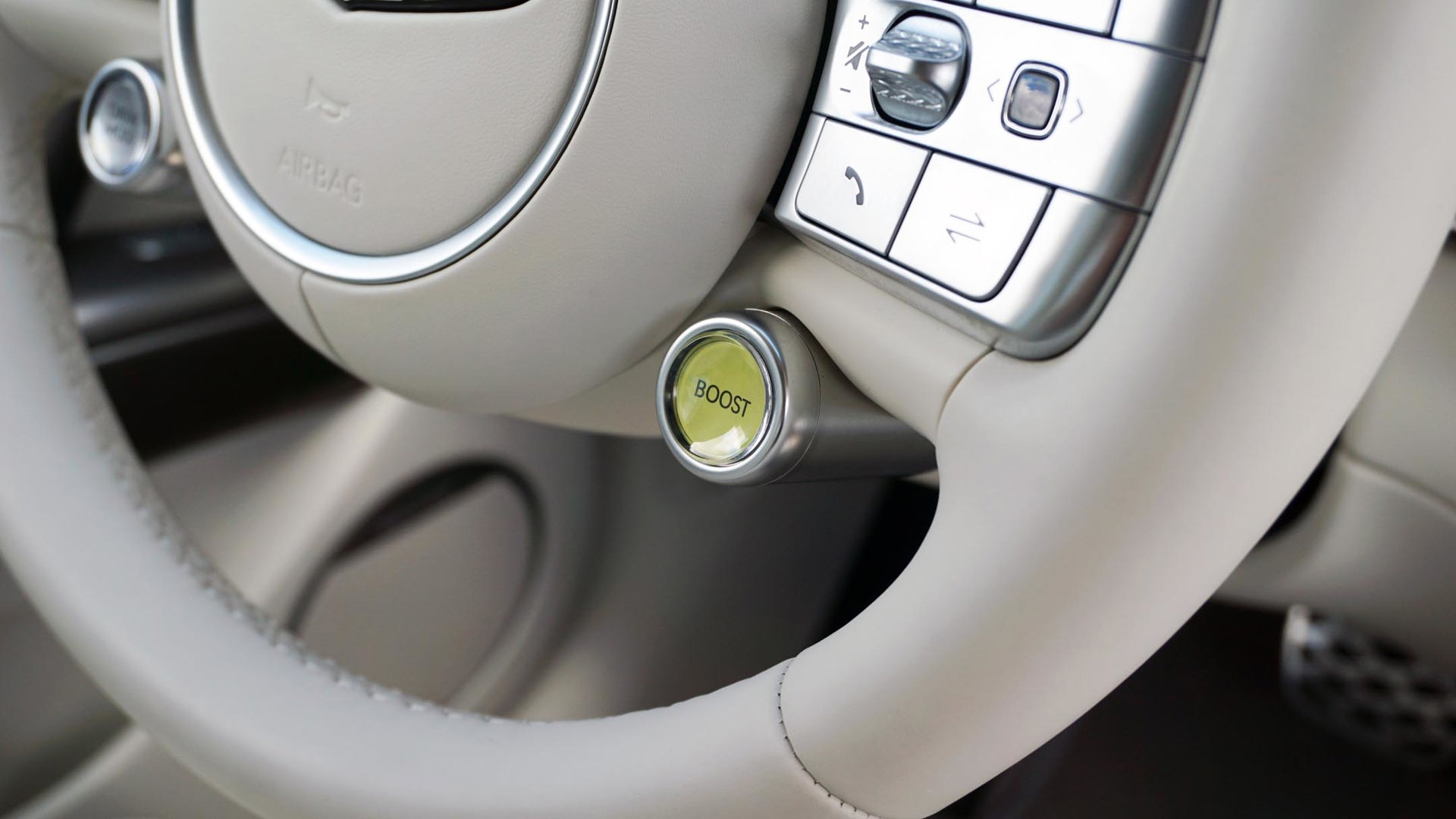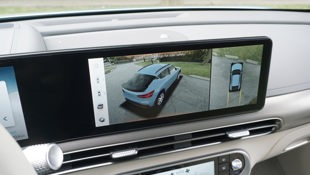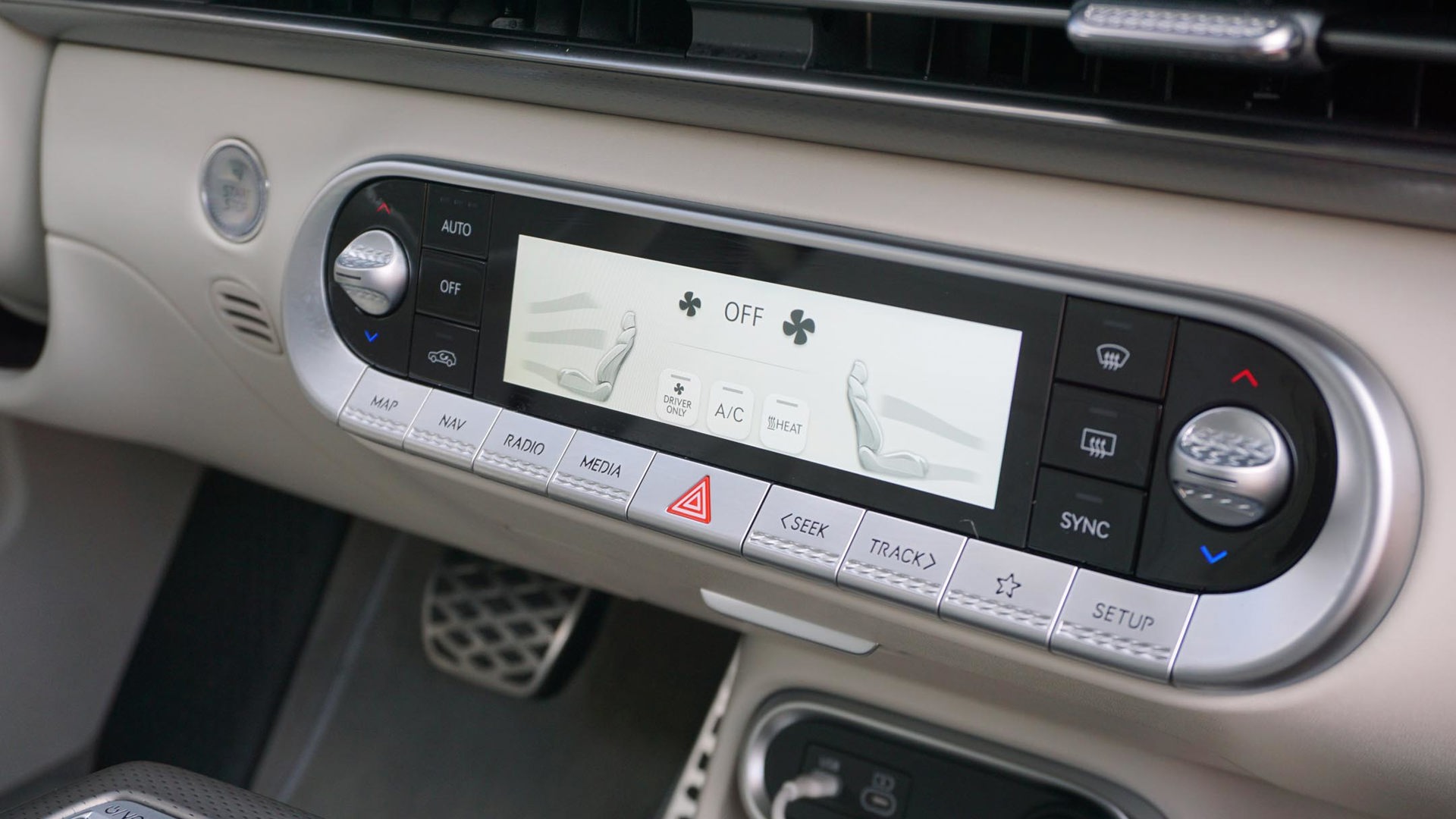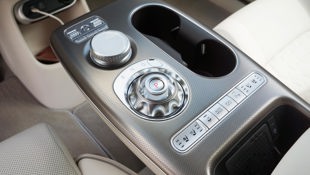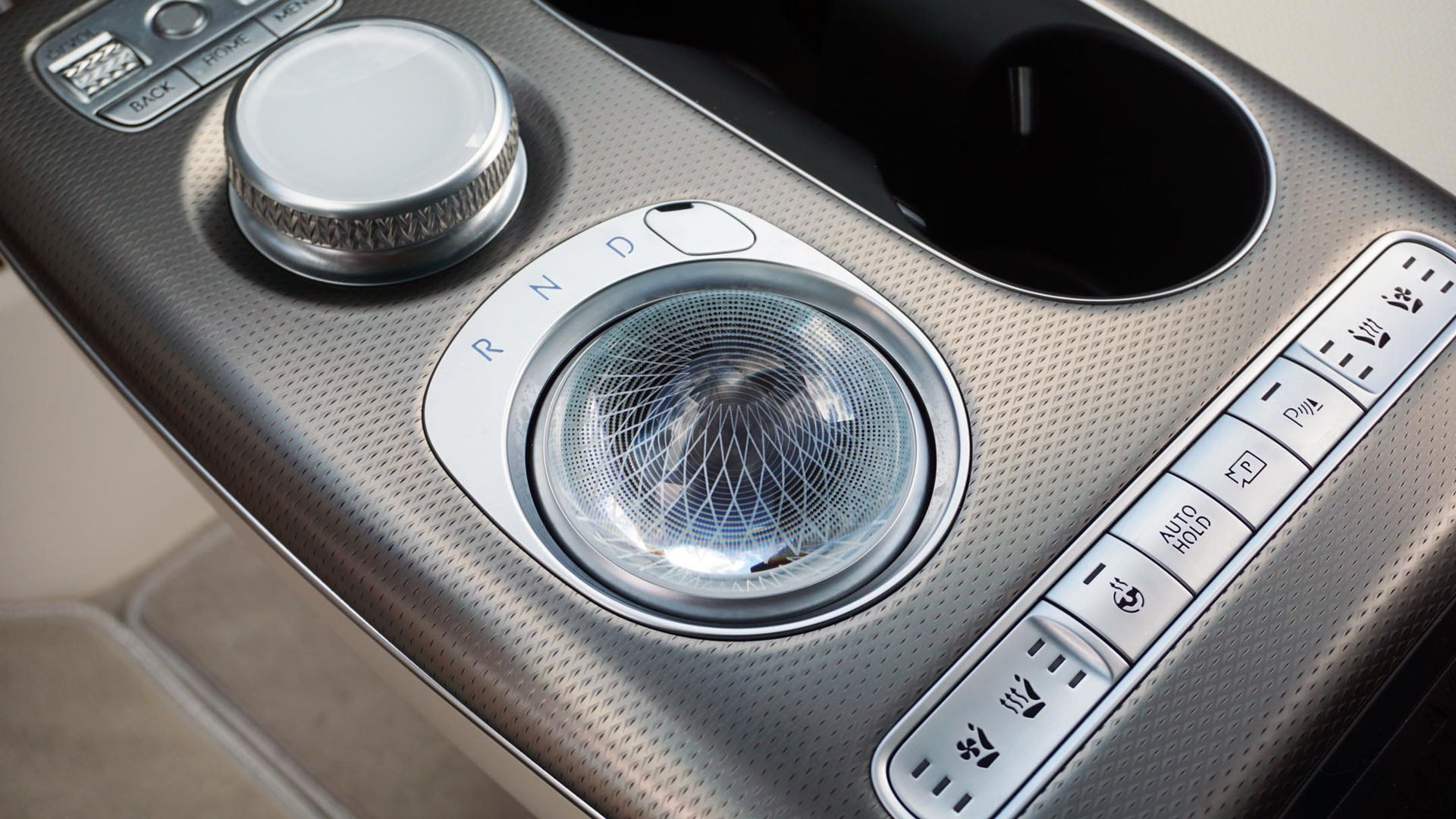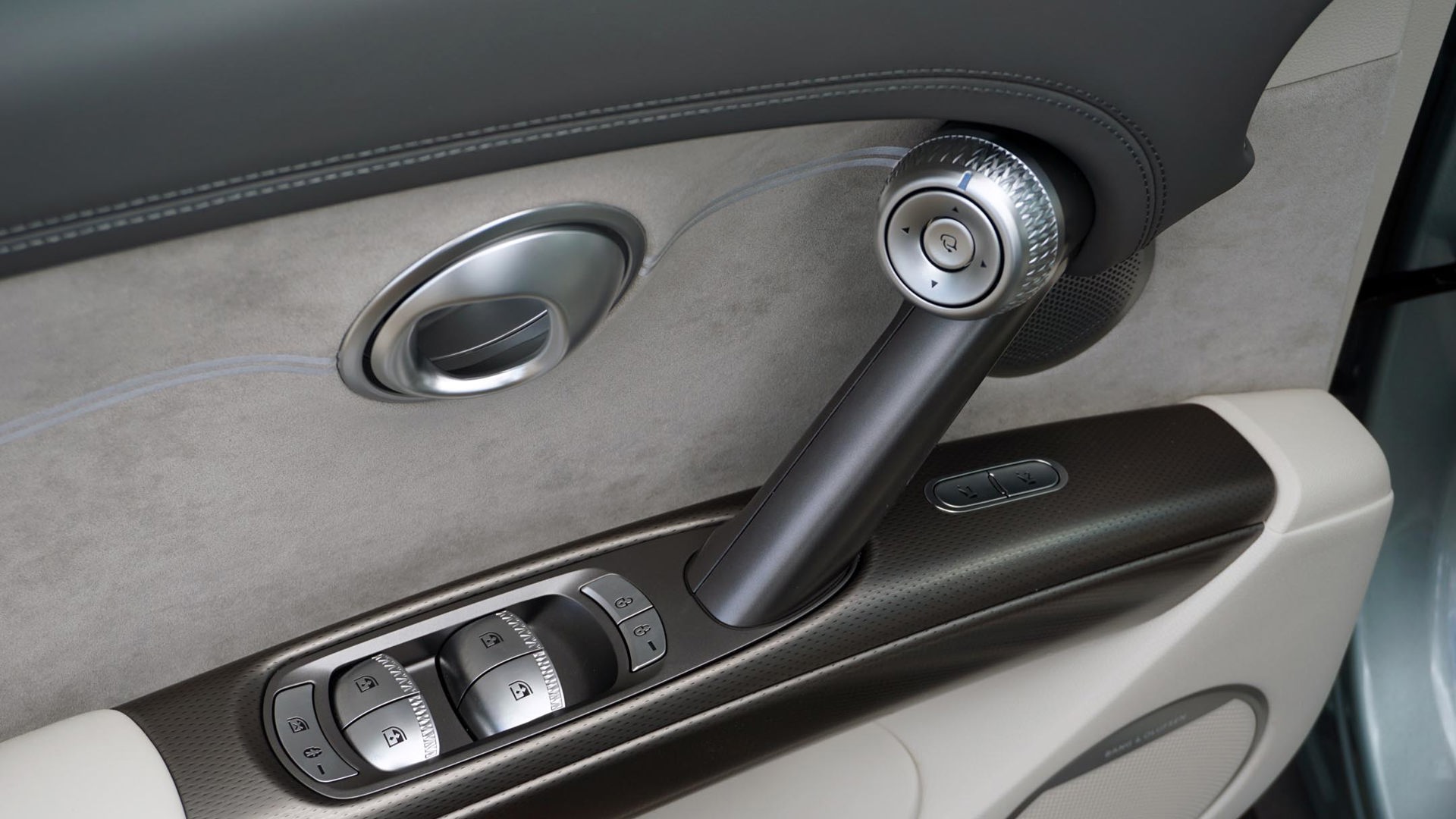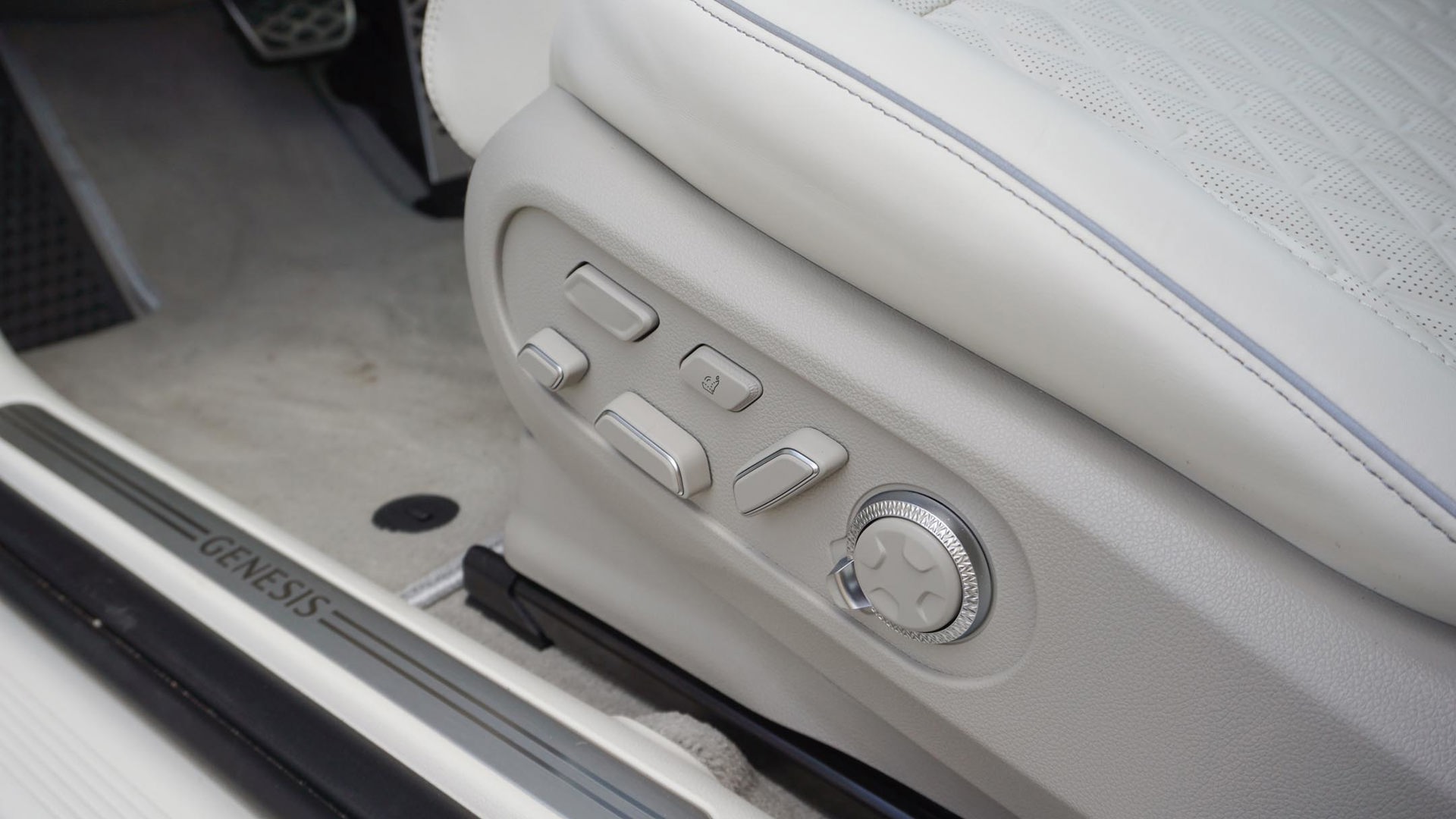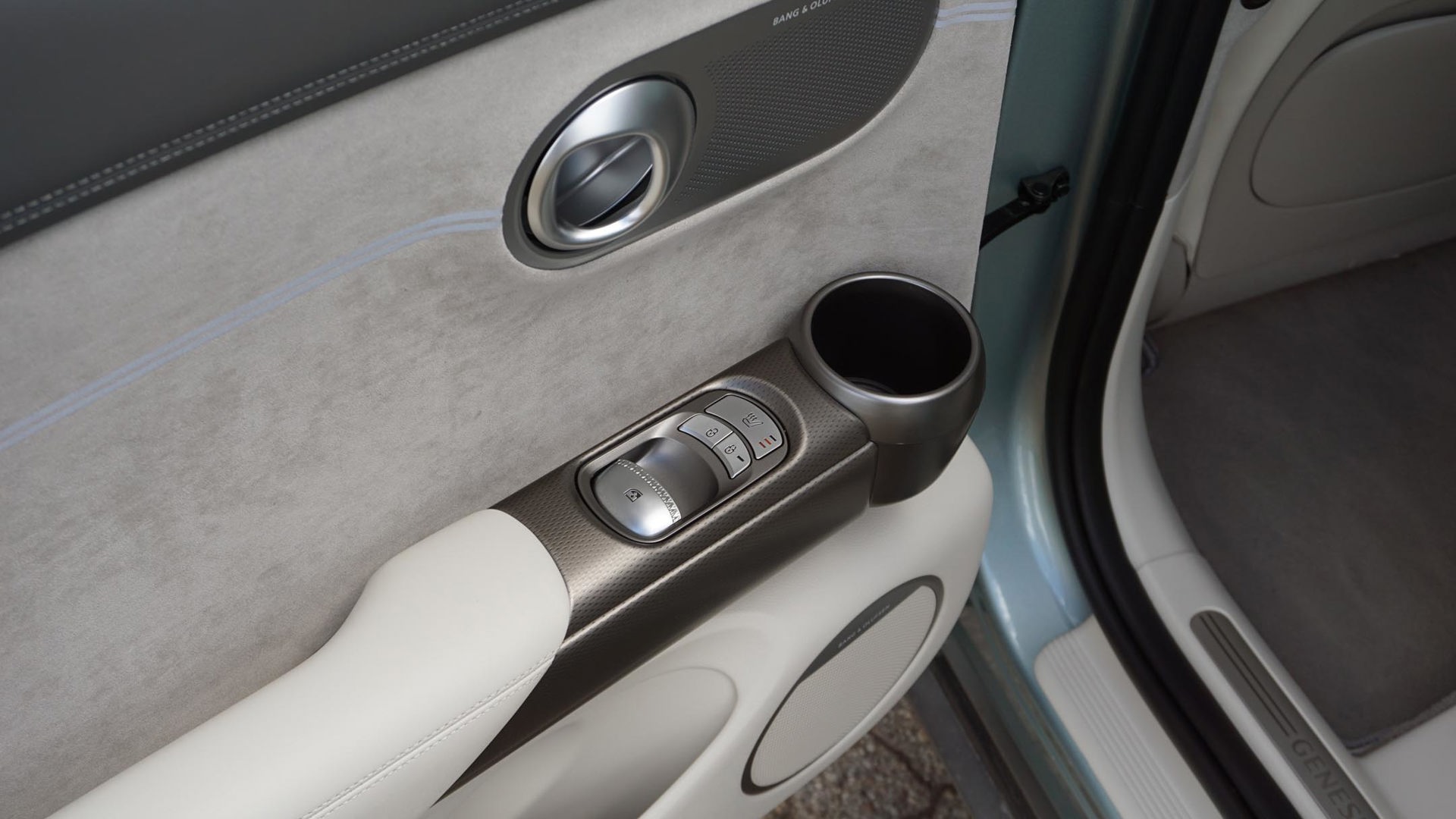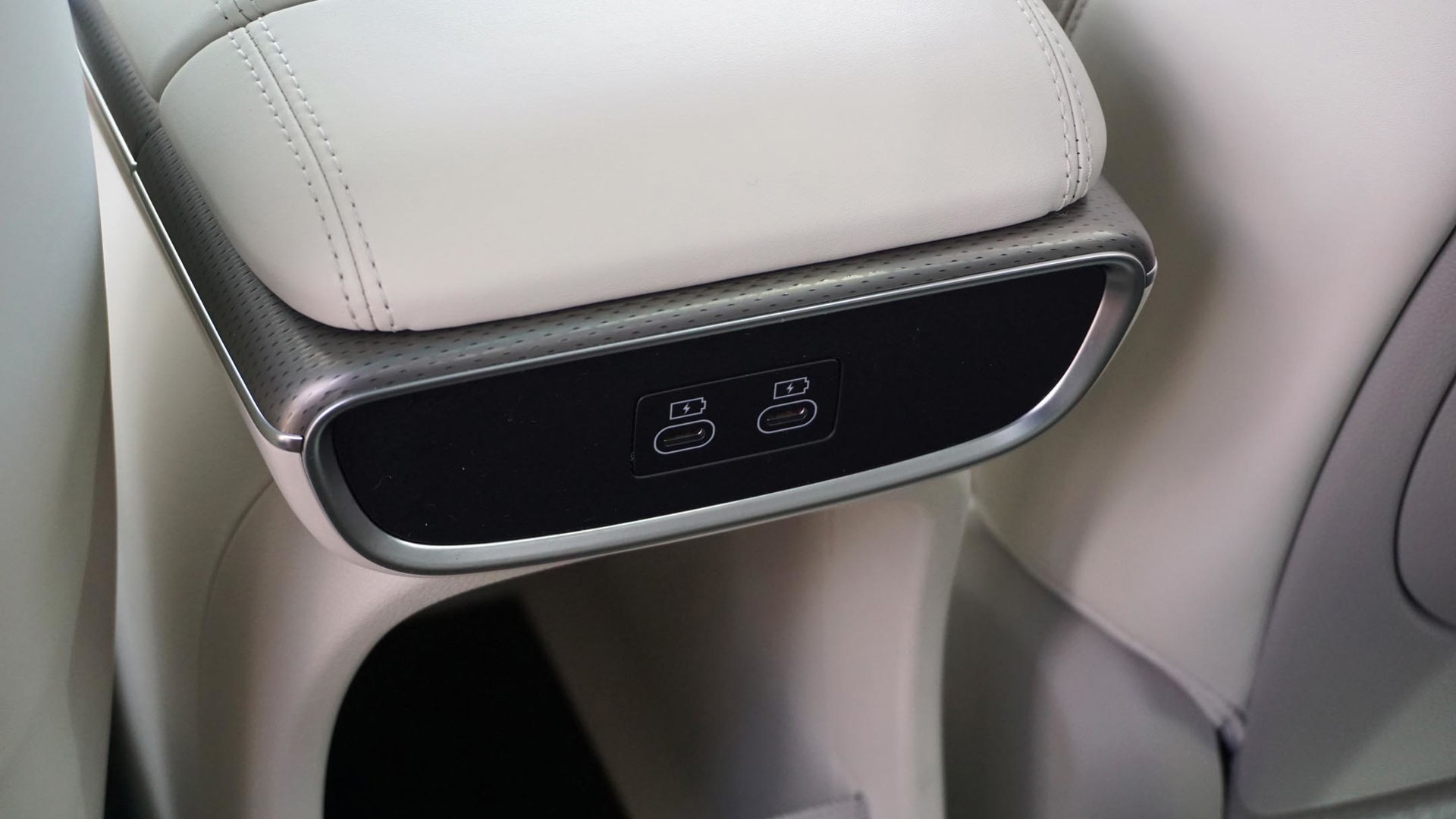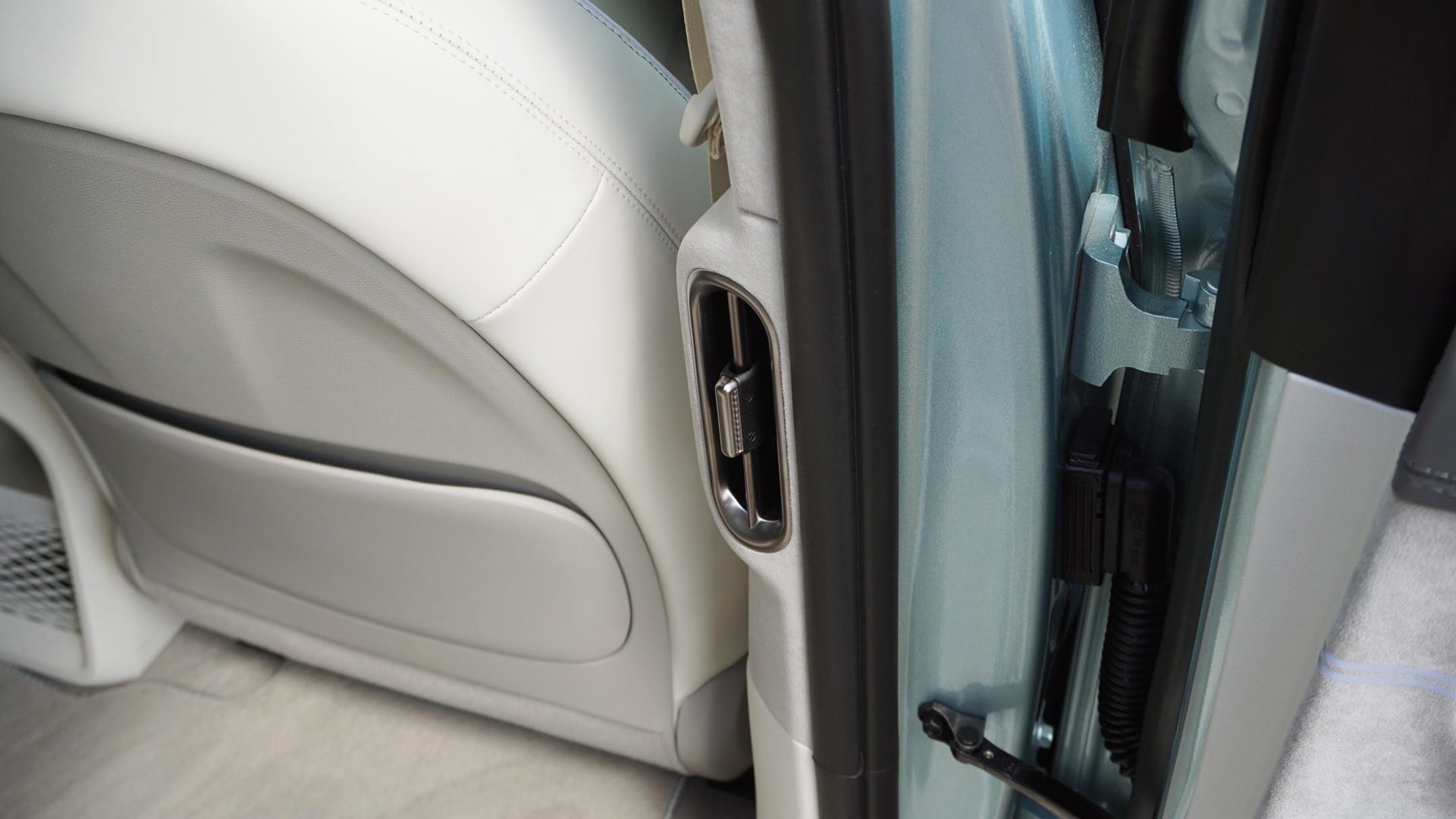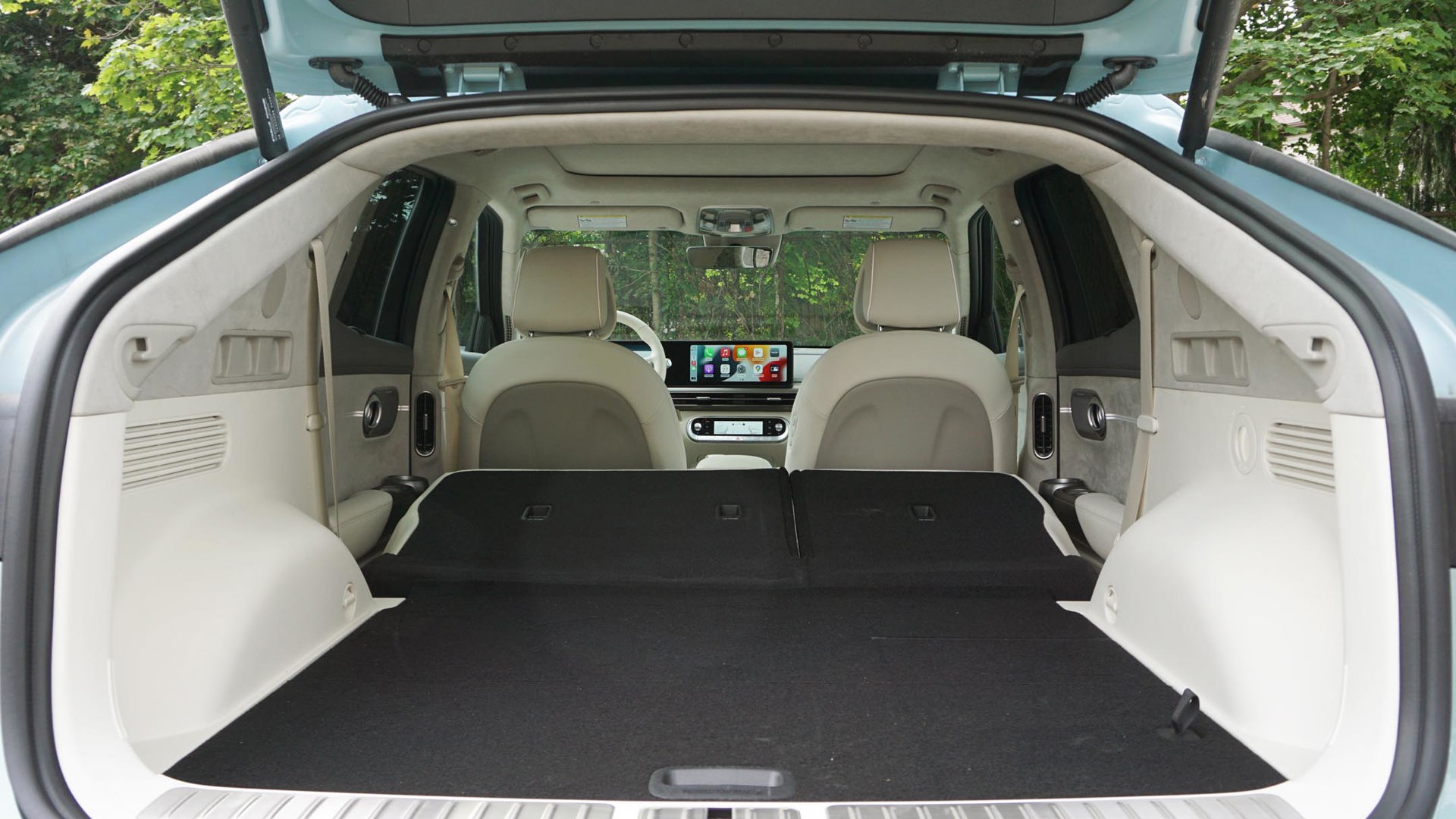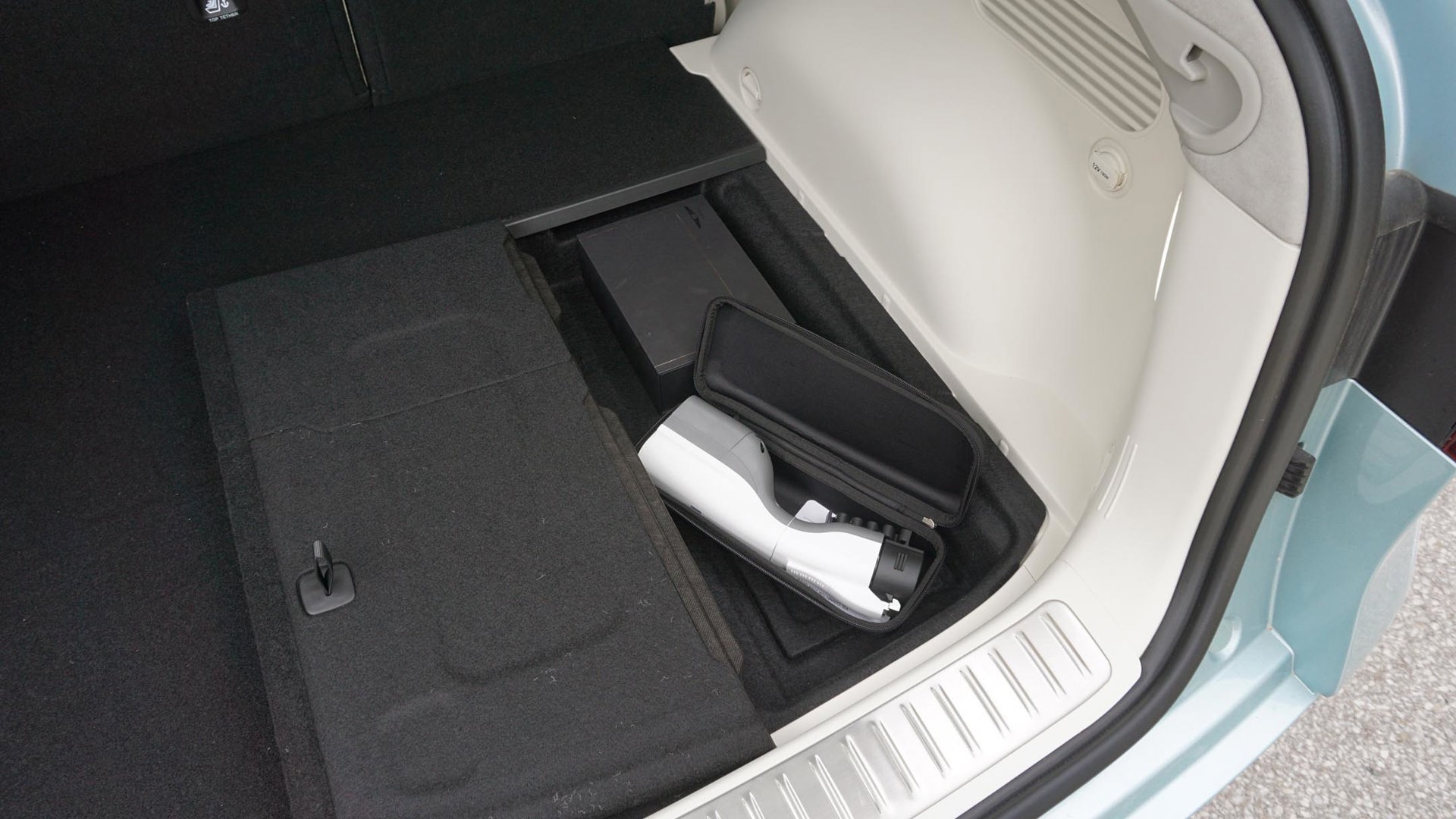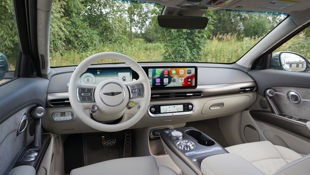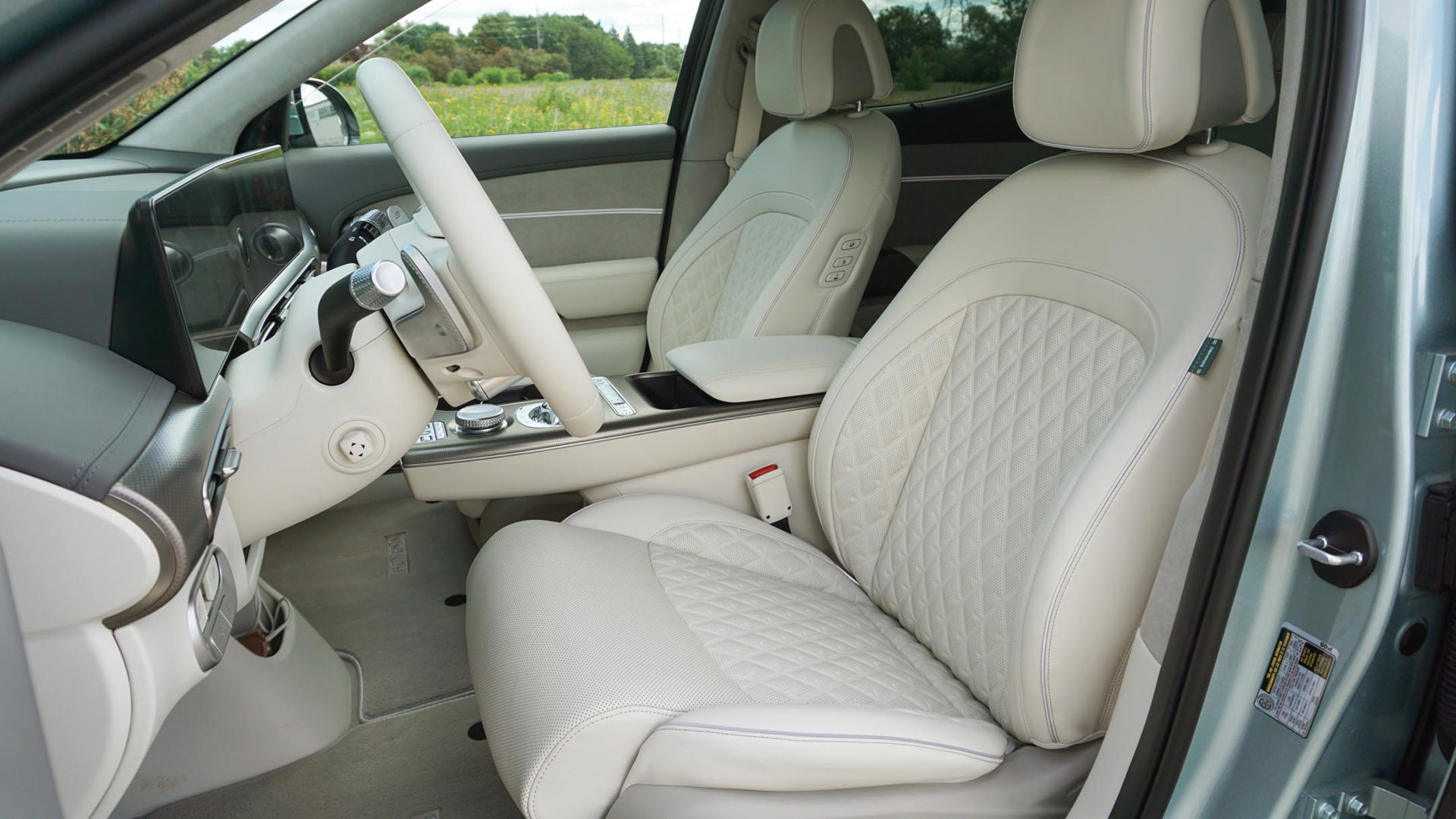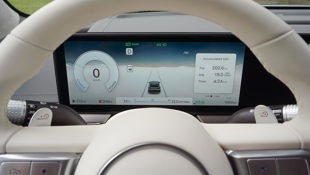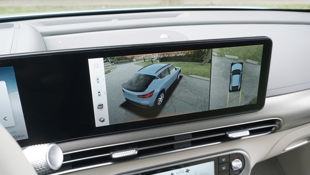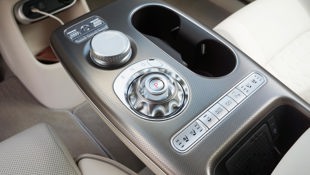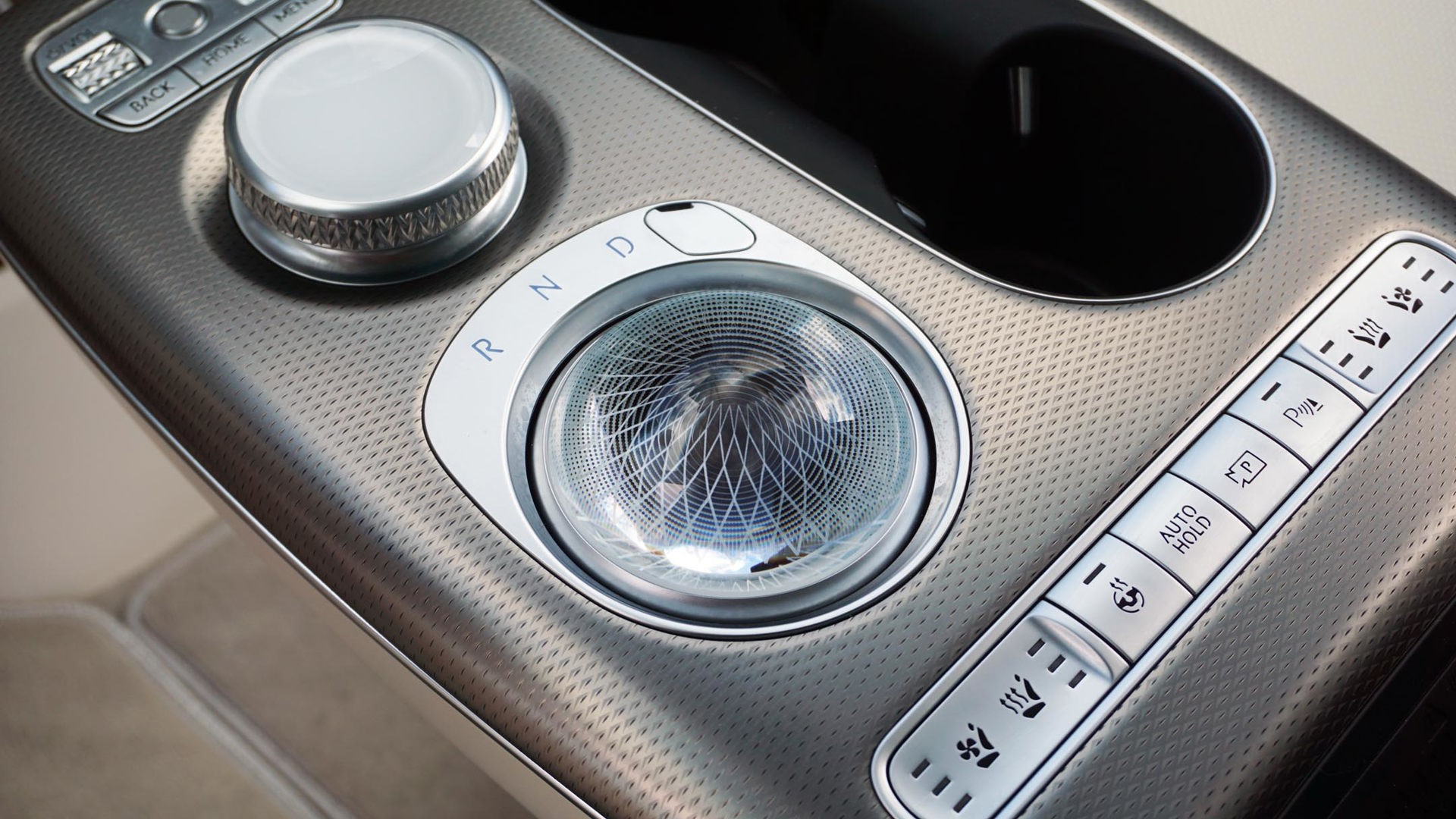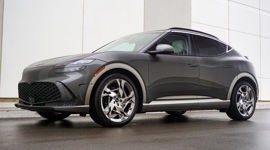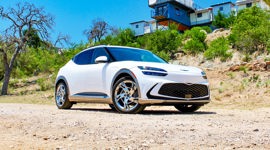 AutoTrader SCORE
AutoTrader SCORE
-
STYLING7/10
-
Safety9/10
-
PRACTICALITY9/10
-
USER-FRIENDLINESS7/10
-
FEATURES10/10
-
POWER10/10
-
COMFORT9/10
-
DRIVING FEEL10/10
-
FUEL ECONOMY9/10
-
VALUE7/10
Genesis has been marching to the beat of its own drum since the brand launched some six years ago.
Back then, its lineup consisted of nothing but sedans – just in time for the crossover craze to kick off. Now its first-ever electric vehicle (EV) is a subcompact crossover just as rival BMW has rolled out a similarly priced…sedan.
Of course, there’s both rhyme and reason behind how the 2023 Genesis GV60 came to be. It also happens to be another solid entry from the brand as it continues to quietly prove its worth as a viable alternative to established premium players. As with some of the Genesis models that have come before it, however, there are areas in which the GV60 comes up short.
Styling: 7/10
Among the few criticisms of the Genesis G90, the first model to be sold under the breakaway brand’s banner was hampered by some parts-bin interior pieces that fell short of the expectations of a proper premium vehicle. Genesis took steps to address those shortcomings in subsequent models, which is why some of the stuff in the GV60 stands out so much – and for the wrong reasons.
While some touches are top-notch, including the gimmicky glass sphere that flips over to reveal a rotary gear selector, others are anything but. The mirror adjustment controller, for instance, is oversized and made of cheap plastic, as are the interior door handles. Those are in stark contrast with the rich and supple microsuede door panels and headliner, as well as the quilted leather upholstery that covers the seats.
Looking past the details, the interior is a modern one that matches well with the quirky exterior styling. The overall shape is graceful, although it’s muddled somewhat by the bull shark nose and signature split headlights. Both available wheel designs are simply spectacular, while the colour palette is refreshingly fun. Even this tester’s shade of Hanauma Mint, which could easily be called “granny green” on a more morose model, is outstanding.
User Friendliness: 7/10
Beyond the GV60’s aesthetic oddities, the sheer volume and variety of controls inside can be more than a little overwhelming. At the risk of coming across as AutoTrader.ca’s own Goldilocks, it seems as though somewhere in between this interface and the oversimplified one offered by the likes of Ford in the Mustang Mach-E electric crossover that centralizes most functions to a massive touchscreen there exists a just-right approach to interacting with a vehicle’s various features.
As it stands, the GV60 can be perplexing to get acquainted with. Of course, there’s a touchscreen that houses a vast array of features; but that’s in addition to controls on the dash and console that require more than a passing glance to use, plus a blend of rockers, buttons, and a single touch sensor on the steering wheel. Worse still, some of the switchgear lacks any sort of identification, so opening the owner’s manual is all but unavoidable.
Features: 10/10
Both Android Auto and Apple CarPlay come standard, although they require hard connections rather than offering wireless access. The touchscreen that runs those and all the other features is a 12.3-inch display, while there’s another screen of the same size that isn’t touch sensitive – that replaces a traditional instrument display.
Also standard is facial and fingerprint recognition technology. The former uses a camera in the driver’s side B-pillar to lock and unlock the doors, while the latter can be used to start the vehicle. Sure, these aren’t explicitly necessary features, but they’re undeniably cool. Unfortunately, as both key fobs are required to initialize both biometric systems for security purposes, neither was put to the test here.
Comfort: 9/10
Heated and ventilated front seats, as well as heated rear ones, are standard across the GV60’s two-trim lineup. So, too, is a heated steering wheel, quilted leather upholstery, and all kinds of power adjustability for the front seats. The top trim adds even more movement for the driver’s side, plus pseudo-massage functionality. Even so, the driver’s seat in this tester wasn’t especially comfortable – an issue encountered in other Genesis products.
The top trim also includes adaptive dampers with road preview functionality, which uses a camera to scan the surface ahead and pre-emptively compensate for imperfections. Together with the tremendously tailored spring rates that help compensate for the bulky battery pack stashed beneath the cabin, there’s a luxuriousness here that its Hyundai Ioniq 5 and Kia EV6 platform mates are missing.
Driving Feel: 10/10
It’s not as if either of those EVs aren’t smooth and supple in their own rights. But it’s similar to the elevated experience the Cadillac Escalade offers compared to the Chevrolet counterparts with which it shares its underpinnings. Being a proper premium vehicle means the GV60’s ride warranted some special treatment to set it apart from those mainstream models.
The GV60 feels different from the Ioniq 5 and EV6 in just about every way imaginable – and that’s in spite of all they have in common. OK, sure, some of the driving essentials are similar, but that has more to do with the fundamentals of electrification. The ultra-low centre of gravity created by the battery pack is obvious, but similar to the larger BMW iX, it’s not quite as obvious as it is in the average EV.
Power: 10/10
Unlike the EV6 and Ioniq 5 – as well as the BMW i4 sedan – every GV60 employs a dual-motor all-wheel drive system. Peak output is the same 446 lb-ft of torque as the dual-motor versions of its platform mates, to go with 314 hp in the Advanced version and 429 hp in this Performance trim.
The latter also boasts a so-called boost mode that unlocks 483 hp and 516 lb-ft of torque for up to 10 seconds at a time. Doing so sends this little crossover surging down the road in a hurry – as if it needed anything more than it provides without that setting activated. The very nature of EVs means there’s no waiting for a mechanical buildup of torque, so that button makes it go from quick to quicker, with zero-to-100 km/h sprint times of less than four seconds with boost mode initiated.
Fuel Economy: 9/10
Both trims use the same 77.4-kWh lithium-ion battery pack, with the entry-level Advanced good for an estimated 399 km of range and the Performance providing a claimed 378 km. Neither of those numbers are especially impressive, nor are their combined consumption rates of more than 22.0 kWh/100 km.
In fairness, those numbers are all fairly competitive across the EV spectrum, although plenty of rivals offer upwards of 500 km of range. More importantly, though, it’s something of a missed opportunity that this little crossover isn’t able to drive further between charging sessions.
The GV60 is capable of Level 3 fast charging, with the ability to top its battery up from 10 to 80 per cent in less than 20 minutes using a 350-kW charger, and in about an hour and 15 minutes on a 50-kW unit. Of course, those are best-case-scenario numbers, with real-world experiences varying depending on conditions.
Level 2 charging, which includes dedicated home setups, should take about seven hours. During testing, it took more than that long to add a little more than 50 per cent to the battery pack using a Level 2 unit at the AutoTrader.ca HQ; although a stop at a 350-kW unit saw the state of charge jump from 65 to 99 per cent in just 35 minutes – impressive given that last 20 per cent takes the longest to top up. Over the course of the week, combined consumption registered at 19.0 kWh/100 km across a total of about 420 km, which is down there with some of the most efficient EVs around.
Practicality: 9/10
Despite its small footprint, there are none of the headroom or hidden speedometer issues here that exist in Hyundai and Kia’s similarly sized EVs. In fact, the space up front makes the GV60 feel bigger than it is; and while the back seat seems to be a little closer to the floor than one might be in a similarly sized gas-powered crossover, there’s a good amount of occupant space. Cargo room is reasonable, too, with 680 L with the rear seats upright and 1,550 L with them folded.
Safety: 9/10
Safety equipment abound, with eight airbags throughout the cabin, automatic high-beam headlights, and rain-sensing wipers. (On that note, there’s no rear wiper here, although without any inclement weather during testing it’s unclear if it’s as problematic as it is for the Ioniq 5 and EV6.) There’s also lane departure warning and keeping and following assistance; forward collision warning with automatic emergency braking; front and rear parking sensors; a head-up display; adaptive cruise control that works in stop-and-go traffic; and blind-spot monitoring with rear cross-traffic alert.
There’s also so-called highway driving assistance that adds automated steering functionality, although it requires a driver’s hands to remain on the wheel to work. Otherwise, upgrades with the top trim are limited to camera-based blind-spot monitoring that puts a live look at either side of the vehicle in the digital instrument display when the signal is activated, plus low-speed reverse automatic braking.
Value: 7/10
With two trims offered and no options available, the Genesis GV60 Advanced is priced at $71,000 before tax, while the top Performance trim is $79,000. Both prices include freight.
While the rear-wheel-drive BMW i4 eDrive40 is cheaper, at almost $64,000 before tax, making it competitive with the GV60 in terms of amenities adds thousands to the price. There’s also the all-wheel-drive M50 version that has a pre-tax price of about $78,500 before options. The Volvo C40 Recharge, meanwhile, ranges from about $62,000 to $76,500. The Tesla Model Y starts at about $89,500.
The Verdict
With the 2023 Genesis GV60, the brand has done it again. It’s a competitive product, with features to rival other premium entries at a reasonable price. Likewise, however, Genesis has once again come up a little short of where it could – or probably should – be with its first all-electric offering. While it may seem fussy to gripe about the look and feel of some of the materials inside, that’s exactly what’s holding the GV60 back from reaching its full potential – especially at the $79,000 price of this top trim.
Beyond those wrinkles, the GV60 might be the best Genesis to date – a bold statement given the brand’s award-winning ways. Range could unquestionably be better, but the rest of the package is about as well-rounded as they come, with just enough gimmicks to stand out.
| Engine Displacement | 320 kW |
|---|---|
| Engine Cylinders | Dual electric motors |
| Peak Horsepower | 429 hp (483 hp w/Boost) |
| Peak Torque | 446 lb-ft (516 lb-ft w/Boost) |
| Fuel Economy | 2.4 / 2.9 / 2.6 Le/100 km, 21.7 / 25.5 / 23.0 kWh/100 km cty/hwy/cmb; 378 km est. range |
| Cargo Space | 680 / 1,550 L seats up/down |
| Model Tested | 2023 Genesis GV60 Performance AWD |
| Base Price | $79,000 |
| A/C Tax | $100 |
| Destination Fee | Incl. |
| Price as Tested | $79,100 |
|
Optional Equipment
None
|
|

